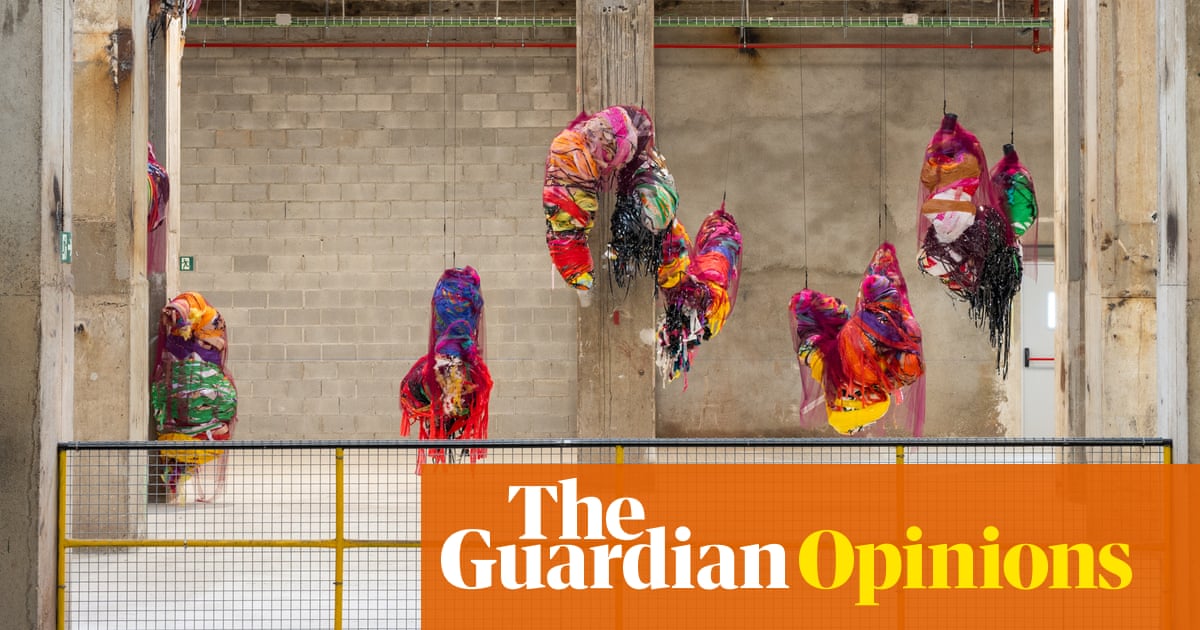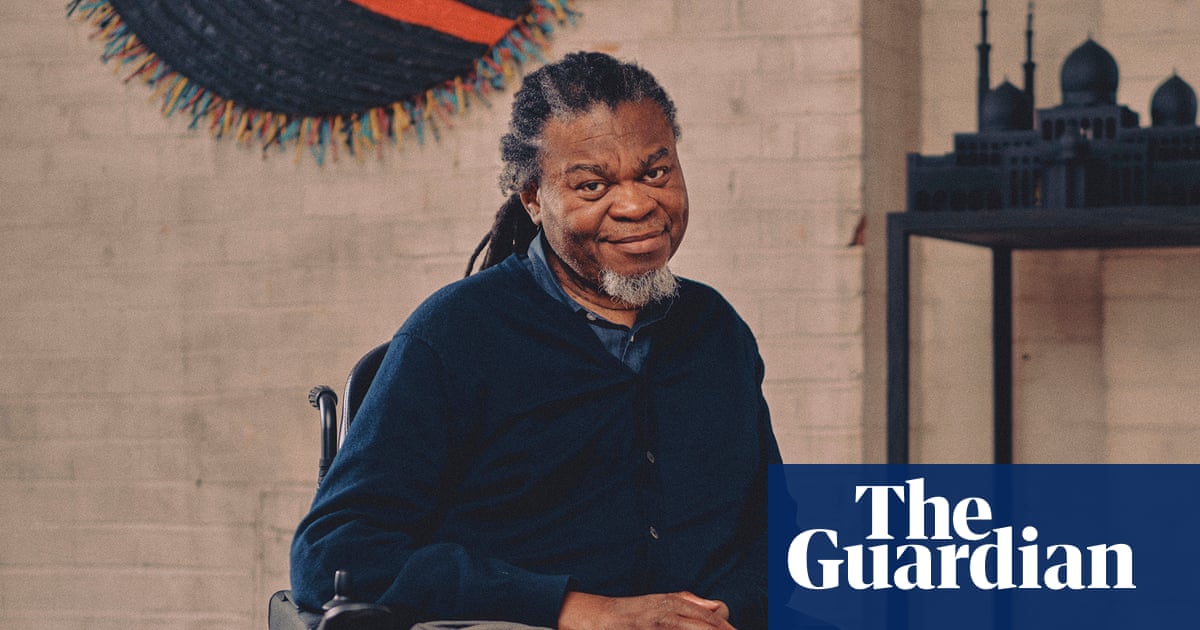Four years ago, scarred by the pandemic experience of trying to care for two toddlers in isolation, my husband and I decided we wanted a built-in community. We were tired of being the ones solely in charge of organizing, feeding, disciplining and playing with our kids.
On a whim, we moved halfway across the world to Singapore to live next door to our best friends, Jeremy and Melissa. We aren’t polyamorous, hippies or reckless. Just another set of tired parents, exhausted by trying to do it all with little support.
We rented an apartment across the street and began sharing meals, childcare and playdates – and yes, we even let my friends yell at our kids. I quickly realized that communal parenting isn’t radical; it’s practical.
I could feel the weight lift as I unlocked the door to their apartment after a long day of work each evening. Jeremy would be in the kitchen cooking something delicious, while Melissa poured me a glass of wine and the kids played in the room next door. Within weeks, I was happier, less stressed, and a better mom than I had ever been before. My kids couldn’t believe their luck. They hadn’t just gained a sibling – but a whole new set of grown-ups who loved them and had their backs.
The experience had me questioning the norms I grew up with: that parenting is a job best left for, well, parents, and that protecting my kids meant keeping them away from anyone whose parenting style I disagreed with.
As a foreign correspondent, my favorite stories have always lived in the cracks between cultures, where what one group finds absurd, another sees as essential. But once I became a parent, I realized the deepest cultural divides weren’t about politics or food. They were about child-rearing. Every country has its own sacred hacks for raising decent, independent kids who sleep through the night – and no two cultures agree.
I started reporting. My book, Please Yell at My Kids, explores hacks like communal living that actually made life easier for parents around the world. I learned how Danish moms ditch anxiety by letting babies nap outside, and how Chinese mothers turn postpartum recovery into a team sport.
And then I brought it all home – and tried it on my own family (sorry, kids).
After watching children in Mozambique help run their households, I put my five- and seven-year-olds in charge of laundry. They loved it – and despite a few outfit casualties, so did I. Like Dutch parents, we gave our kids more freedom – until a police officer showed up, deeply unimpressed that my son had biked a little too far unsupervised. And I swallowed my pride (and gallons of chicken-papaya soup) when my mother-in-law moved in to oversee my post-birth recovery the traditional Chinese way.
My husband and I had long-overdue conversations about sharing the invisible labor at home after I saw fathers in Sweden taking up their share of chores. Inspired by active grandparents in Singapore, we brought my own parents into the parenting mix –even if it meant a little more sugar and screen time than I’d like.
Here are the top lessons I learned along the way:
Plant a village (Mozambique)
In Mozambique, the word “mom” isn’t reserved for biological parents. It’s used for the auntie down the street, the older neighbor who watches the kids while parents work, the woman who has extra snacks for everyone’s child. These networks of care often span generations – those same kids grow up to care for the elderly neighbors who once looked after them.
Today, many parents in the US wonder why they don’t have a “village” to help raise their kids. But villages don’t just appear – they must be planted, nurtured, and watered. When I moved back to the US, I threw open our doors for family game nights, holiday parties, and after-school chaos to anyone who wanted to join. I also started keeping quiet tabs on my block: who’s slammed with work and could use a hand with the kids? Who’s been sick and might appreciate soup on their doorstep? I couldn’t replicate the village I saw in Mozambique – but I realized I could grow one, starting right where I was.
after newsletter promotion
Expand the guest list (Brazil)
In the same vein, raising kids shouldn’t be a private project. We call on a team of bridesmaids and family for our wedding – but when the baby arrives, we suddenly go it alone? No thanks.
Start building your village from the beginning. Maybe you don’t want 40 people at your C-section, like new moms in Brazil, but consider expanding the guest list of people you invite into parenting. Look for non-judgmental friends who can see you at your worst. Ask your community to help you plan a meal train, or pre-schedule coffee dates that get you out of the house and into your community. Draw strength from the lessons of women who came before you. Ask the mothers, grandmothers and other women in your family about the joys of their own experiences, but also their struggles. What surprised or scared them? How do they feel about it now, years or decades later? How did their identities change after becoming parents? What do they wish they knew?
Move in with your friends (Malaysia)
The Iban tribe in Malaysia lives communally in longhouses, where families raise children, share meals, and gather every night. When we moved in next door to our best friends and began raising our kids together, I finally understood why so many cultures have embraced communal parenting for generations. There are real economies of scale when you team up with other exhausted parents.
Maybe you can’t all live under one roof like the Iban – but even being in the same neighborhood, or prioritizing time with people you trust, can offer something just as valuable: a deep sense of connection and belonging for both you and your kids.
Drop your kids off in the woods (Netherlands)
In the Netherlands, parents send kids into the woods during summer camp with only a flashlight and snacks and let them find their way home. It’s called a forest dropping – and it’s meant to build resilience and independence.
You don’t have to go full Hansel and Gretel, but start small: teach road safety, let them bike ahead of you, send them on grocery store errands. As kids gain confidence and contribute meaningfully to family life, they learn that they’re not just passive recipients of care – they’re capable members of a community.
Make Granny nanny (Singapore)
At school pickups in Singapore, I was often the only mom in a sea of grandparents. But these weren’t the US-style grandpas who mail a birthday check and pop in on FaceTime at Christmas. Grandparenting in Singapore is serious business. They ferry kids to after-school activities, help with homework, and play a major role in passing down values and discipline.
While many US parents long for this kind of support, they’re often quick to set boundaries when grandparents don’t parent exactly as they do. In Singapore, I learned that alignment doesn’t have to be total for help to be meaningful. Just because a grandparent doesn’t share your every parenting principle doesn’t mean they can’t read a bedtime story over the phone or tutor your kids in math. The key is figuring out what you need, where your values overlap, and then stepping back and letting them show up in their own way.
The parenting hacks I picked up varied from country to country. But in every place, from Mozambique to Finland, I came away with the same lesson: parenting is hard everywhere, but nowhere is it as lonely as it is in the US.
Building community – through family, friends or neighbors – won’t solve every parenting challenge. But it can lighten the load, restore your sanity, and bring joy back into your home.
When we stop trying to do it all alone and start letting others in, we don’t just raise better kids. We build fuller lives – for them, and for ourselves.
Marina Lopes is the author of Please Yell at My Kids: What Cultures Around the World Can Teach You About Parenting in Community, Raising Independent Kids, and Not Losing Your Mind, out now

.png) 6 hours ago
5
6 hours ago
5













































